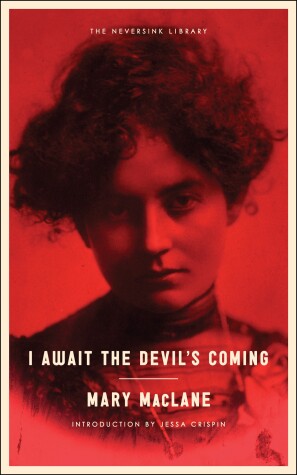
lovelybookshelf
Written on Aug 11, 2013
Wow. This book... I've been sitting on this review all week, trying to gather my thoughts and figure out where to begin.
Mary MacLane comes across as a wee bit narcissistic, even sociopathic at times. She goes on and on and on about what a genius she is. She's not lacking in self-confidence. She says her family means nothing to her (and makes you believe it). Even when she does a good deed, she admits she only does so because it makes her feel good; no other reason whatsoever. Stuck in a small mining town, wanting more for herself, MacLane feels completely misunderstood and out of place.
But this is a journal, after all. Many of her sentiments could be chalked up to teen melodrama. She is brutally honest about herself, spouting her innermost thoughts in an angry whirlwind of words.
I think the challenge in reading I Await the Devil's Coming (aside from MacLane's freaky infatuation with the devil) is trying to put aside my own contemporary perspective. When I consider the role of women around 1900, MacLane seems far less crazy and more just... horribly displaced in time. Women didn't yet have the right to vote. Considered obscene, birth control information and devices were illegal. Traditional gender roles were expected; for women, that meant a life of domesticity. Period. I thought back to Garnet facing similar feelings and struggles in Molly Beth Griffin's Silhouette of a Sparrow, which is set 24 years later, and I think, 24 years later!? Mary MacLane was so far ahead of her time; it's no wonder she often felt overwhelmed by these frustrations.
"What else is there for me, if not this book? And, oh, that some one may understand it!"
It is vital for readers to remove their modern lenses while reading the thoughts MacLane shares in I Await the Devil's Coming. This is a fascinating look into a fiercely brilliant mind.
I received a copy of this book from the publisher via Edelweiss in exchange for an honest review. I did not receive any other compensation for this review.
